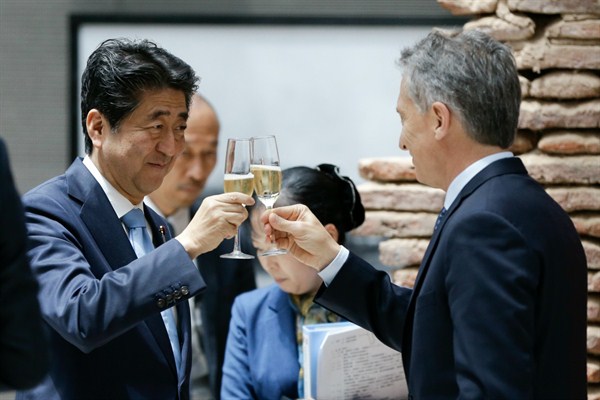Changing realities in the Americas are forcing Japan to re-evaluate its brand in the region. Seeking to preserve and expand its longstanding economic connections from Argentina to Mexico, Japan is taking active steps to raise its profile in the shadow of China’s continuing push into Latin America and growing uncertainty about the role of the United States under the Trump administration. As the newly protectionist trade talk coming out of Washington threatens economic pillars like NAFTA, there are surprising consequences for Tokyo.
Traditionally, Japan has taken a low-key approach to Latin American issues, content to build its relations quietly and methodically, and preferring to remain apart from the normal churn of regional politics. Such an approach may no longer be tenable.
For all the attention that China gets, Japan’s modern interests in the Americas pre-date those of Beijing. Historical migration patterns in the 1800s and a boom in direct foreign investment after World War II, when traditional avenues of Japanese commercial engagement in Asia were foreclosed, expanded both the expatriate community and economic ties. Japan never sought to project power into Latin America, however, or had any particular interest in influencing one way or the other the periodic political eruptions that have buffeted the region.

